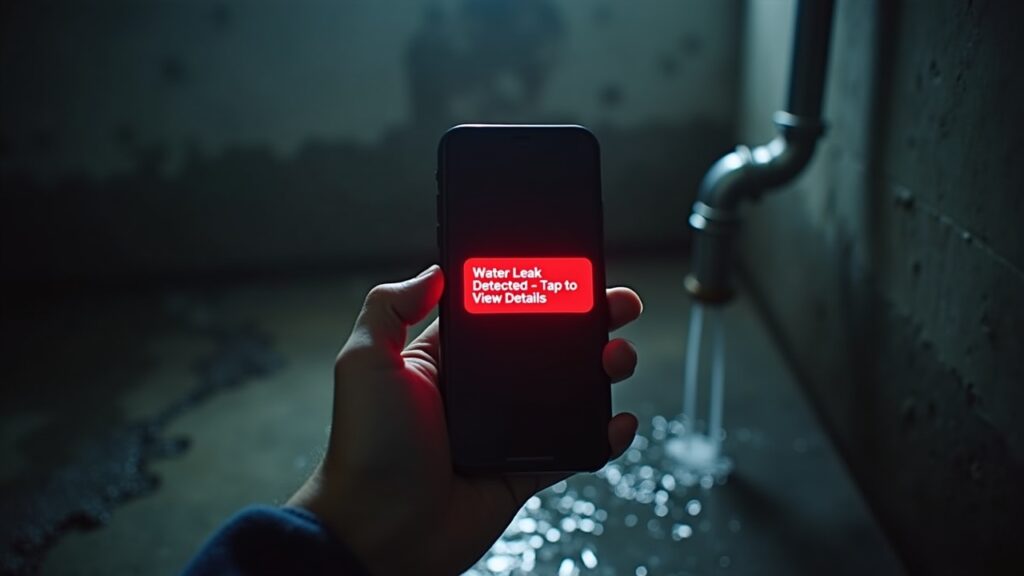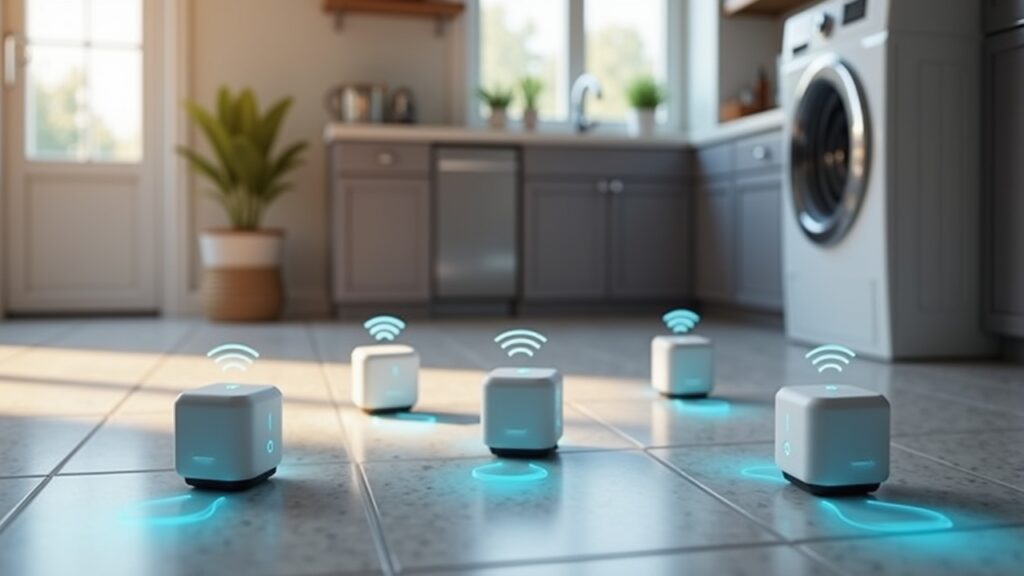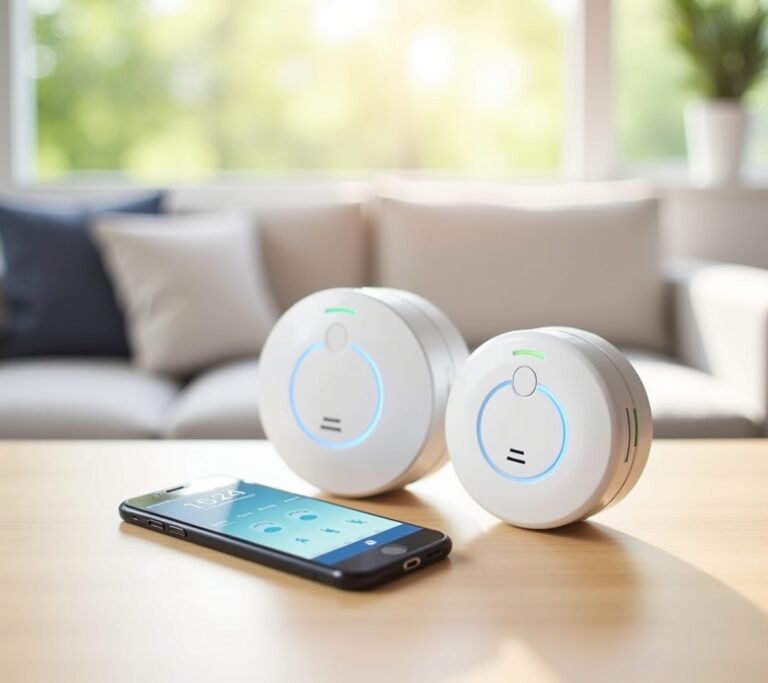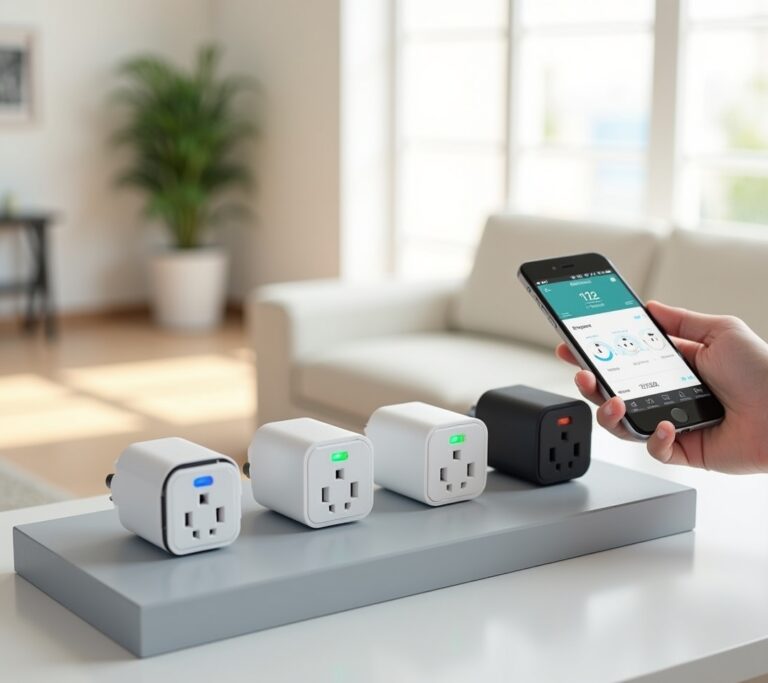Advertisements
Let me tell you, nothing ruins your weekend quite like discovering your basement’s turned into an indoor swimming pool! That’s exactly what happened to me last winter when a pipe burst while we were away visiting family. The damage? Let’s just say it cost me more than my car’s down payment.
Since that nightmare, I’ve become somewhat obsessed with water leak detection systems. And honestly, smart leak detectors have completely changed the game for homeowners like us.
Did you know that water damage affects about 14,000 people in the US every single day? That’s a scary statistic that hits different when you’ve been one of them.
What Makes a Water Leak Detector “Smart” Anyway?

When I first started researching these gadgets, I thought all leak detectors were basically the same. Boy, was I wrong! Smart water sensors are like having a 24/7 plumber on standby, minus the hefty hourly rate.
These devices connect to your WiFi and send alerts straight to your phone. Some even shut off your water automatically – which would’ve saved my basement, no doubt.
The basic ones just detect moisture, but the really smart ones monitor temperature, humidity, and can even learn your water usage patterns. Pretty wild stuff for something the size of a hockey puck!
My Top Picks After Testing Way Too Many
I’ve probably spent more on leak detectors than most people spend on shoes. Here’s what actually works:
The Moen Flo Smart Water Detector has been my go-to recommendation. It’s pricey, sure, but this thing saved my neighbor’s kitchen last month. The app is super intuitive, and it actually detected a slow leak under their sink before any visible damage.
For budget-conscious folks, the Govee WiFi Water Sensor surprised me. At under $20, I wasn’t expecting much. But it’s been reliably protecting my water heater area for over a year now.
If you’re all-in on smart home stuff like me, the Phyn Smart Water Assistant is incredible. It monitors your entire plumbing system and can tell the difference between a toilet flush and a leak. Though setting it up made me question my DIY skills!
Where Should You Actually Put These Things?
Placement is everything – learned that the hard way. My first detector was in the basement corner where “water might collect.” Meanwhile, the leak happened clear across the room near the water heater.
Here’s where I’ve got mine now:
- Under every sink (kitchen and bathrooms)
- Behind the washing machine
- Next to the water heater
- Near the sump pump
- By toilets (especially the upstairs ones!)
Pro tip: get detectors with extension cables for tight spaces. Trying to squeeze behind my washing machine to check the sensor was not fun.
Features That Actually Matter (And Some That Don’t)
After wasting money on fancy features I never use, here’s what really counts:
Battery life is huge. Nothing’s worse than a dead detector when you need it. Look for ones lasting at least a year – the Moen units I mentioned earlier go for like 2 years on regular AAs.
Temperature monitoring seemed gimmicky until it alerted me about freezing pipes in my garage. That feature alone probably saved me thousands.
Now, do you need water usage analytics and monthly reports? Eh, probably not. I thought I’d love tracking my water consumption, but honestly, I checked it twice and forgot about it.
Installation Nightmares and Victories

Most of these sensors are genuinely plug-and-play. But man, some of the apps will test your patience! The Govee app made me create an account, verify my email, and jump through hoops before I could even start.
The easiest setup? Definitely the basic smart sensors. Download app, connect to WiFi, place sensor. Done in 5 minutes.
The whole-home systems like Phyn require actual plumbing work. I tried doing it myself… let’s just say I ended up calling a plumber anyway. Sometimes it’s worth admitting defeat!
Your Home Deserves Better Than My Basement Got
Look, water damage is one of those things you don’t worry about until it happens. Then it consumes your life for months. Between insurance claims, contractors, and replacing everything that got soaked, it’s a nightmare I wouldn’t wish on anyone.
Smart water leak detectors aren’t perfect. Mine occasionally gives false alarms when I spill coffee (happens more than I’d like to admit). But for the peace of mind? Totally worth it.
Start small with a few sensors in high-risk areas. You don’t need to go crazy and monitor every pipe in your house right away. Though after what I went through, I kinda did exactly that!
Remember, the best leak detector is the one you actually install. Don’t let them sit in the box like I did for three months – that’s not protecting anything except your junk drawer.
Want more smart home tips and honest tech reviews? Check out other posts on Tech News 360 where we test this stuff so you don’t have to learn the hard way like I did!




[…] to dive deeper into smart home tech? Check out more guides and reviews at Tech News 360 – we’re always exploring the latest ways to make your home […]